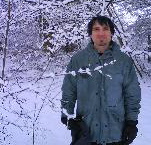By George Elerick
Children love to push boundaries, teenagers do too. And you might even meet some adults who like to do the same. Curiosity is within us, some get taught to hide it, others get taught to chase after it — no matter where it leads.
I think we need a healthier perception of curiosity and how it can lead us to be better humans and overall a better humanity. How do we get it? By asking questions. Jesus invites people not only to learn from children, but to also become just like them. To push boundaries. To ask deep intriguing questions that might start with something as simple as ‘Why is the sky blue?’
If we began to lose that child within then the world becomes about what we take from it, rather than what we learn. And there is a difference. Yes, learning is a sort of taking, but learning assumes you are somehow applying what you have taken. And giving something back. Learning is or can be circular. A give and take — a dance. But if we stop, then we began just taking then keeping and hording than oppressing to keep our hordes.
There has been a question rolling through the Church like a wildfire for a while now. Usually its in terms of things like sin or grace. And the question is: “How far is too far?” But I think we have been asking the wrong question for far too long. I think we need a new one.
Then Peter came to Jesus and asked, “Lord, how many times shall I forgive my brother when he sins against me? Up to seven times?” Jesus answered, “I tell you, not seven times, but seventy-seven times. -Matthew 18:21-22
Peter’s curiosity led him to question how to quantify forgiveness. how to numerically justify reconciliation. at that point, the person he was concerned about stopped being important, Peter was really concerned about his reputation. his internal monologue might sound something like this: “Well, if i don’t forgive him enough then people will think i am just a cynical angry person. But, if i forgive him too much, then well, people might think i am a door mat”.
Peter cared about what others thought. At that point, forgiveness became a tool for self-glorification. And it also became a way to justify a minimalist approach to repairing broken relationships. But, really what Peter was asking is ‘how far is too far?’ And Jesus astonishes Peter with his response.
The number seven in Hebrew numerology is a number for perfection. And the number 70 is among a collection of numbers that symbolizes completeness or wholeness. Jesus basically says– it doesn’t matter. Just forgive. Jesus trumped Peters notion of quantifying forgiveness and turn the person into a product of consumerism.
The moment we quantify anything is the moment we agree that we can only be consumers who are trying to get something out of it for ourselves. Which is also the same moment that it stops being reconciliation. The moment we take something as intimate as friendship and turn it into a number is the moment we care more about ourselves and reputation than we do the other person.
By Jesus answering the way he did, he was basically saying that reconciliation is the point. Not how many times you reconcile or what it makes you look like. That our responsibility is to be a people who walk in daily awareness of our reconciliation and that we too should share what we have freely received. I know it’s a bit archaic, but it’s true. I think Jesus offered Peter a new question: Rather than asking “How far is too far?” why not ask “How am I embodying the power of reconciliation?”
Let’s put this in terms of caring for the other or being a neighbor. Somebody might ask (like the teacher of the law in the parable of the Samaritan) “Who is my neighbor?” Again, he is trying to quantify/justify the need to go only so far. And Jesus’ short story responds by saying, “Just be a neighbor.”
And so, in this conversation of forgiveness, acceptance and reconciliation, Jesus basically retorts by stating, “That is the wrong question.” Just love. Just embrace. Just carry the other, it doesn’t matter who they are. Or how far you’ve gone or they’ve gone — just love them! If we continue to ask “How far is too far?” we will never get that far.
There is no limit. There is no distance that is too far.
 George loves the outdoors, singing in the shower and doing underwater, synchronized pilates. He is currently working on a book entitled Jesus Bootlegged: Recapturing the Stolen Message of Jesus for The World. You can read more about him at his blog: The Love Revolution.
George loves the outdoors, singing in the shower and doing underwater, synchronized pilates. He is currently working on a book entitled Jesus Bootlegged: Recapturing the Stolen Message of Jesus for The World. You can read more about him at his blog: The Love Revolution.
